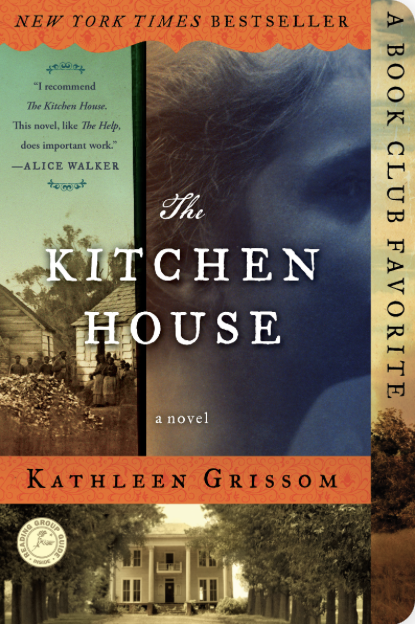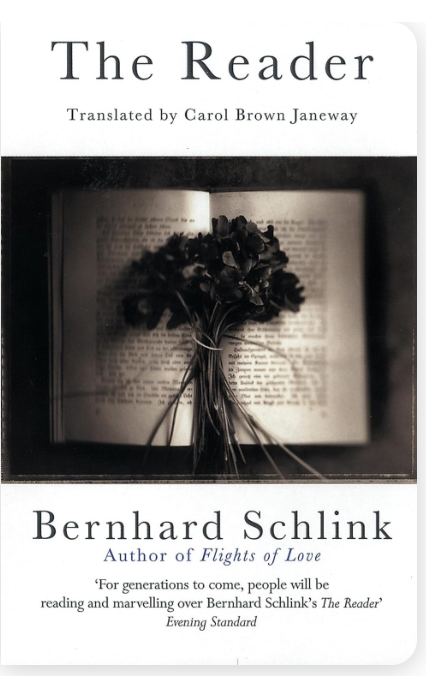
Recent Reviews

The Kitchen House by Kathleen Grissom
The Kitchen House by Kathleen Grissom offers a unique and intimate perspective on the institution of slavery in America during the late 1700s. The story centers on Lavinia, a young white Irish girl who, after losing her parents on a ship bound for America, finds herself brought to a Virginia tobacco plantation by the ship’s captain. Lavinia is left in the Kitchen House, where she lives alongside the other slaves, all of whom are Black. At just seven years old, Lavinia is traumatized by the loss of her parents and is thrust into a world she cannot fully comprehend.
Lavinia quickly becomes attached to the slaves, especially Belle, the captain’s illegitimate daughter. Belle takes Lavinia under her wing, becoming a maternal figure and teaching her to cook, clean, and wait on the captain’s family. Lavinia’s bond with Belle and her family grows stronger over time, and she feels immense gratitude for their love and care. However, Lavinia’s skin color sets her apart in the eyes of the captain’s family.
As Lavinia grows older, she becomes aware of the rigid cruelty of the caste system based on skin color that governs life on the plantation. Her slave family attempts to educate her about the rules and expectations, but Lavinia struggles to understand the social structure that separates her from those she loves. Lavinia simply loves Belle and the other members of the Kitchen House and learns that she cannot openly express her affection toward them.
The historically based novel powerfully illustrates the absurdity of this racial hierarchy and exposes the ways in which white people projected their own negative behaviors onto their Black slaves. The fast-moving plot incorporates a diverse cast of characters and explores complex themes of loyalty, identity, and belonging. Lavinia must eventually assume a new role dictated by her skin color, and her loyalties to those she loves are put to the test.
The Kitchen House provides a distinctive perspective on the deep bonds of hope and love that can exist within chosen families, even in the face of cruelty and injustice. The story allows readers to empathize with the characters’ struggles and appreciate the difficult choices they must make as they navigate the harsh realities of plantation society.
Overall, the novel is a moving exploration of human connection and the enduring hope that sustains people through adversity. This novel is a compelling read, filled with emotion and historical authenticity. 4/5.

The Reader by Bernhard Schlink Translated from the German by Carol Brown Janeway
I picked up Bernhard Schlink’s The Reader without knowing what it was about and quickly became engrossed. The novel explores the Holocaust’s impact on postwar Germans through the relationship of Hanna Schmitz a 36-year-old woman, and Michael Berg, a 15-year-old boy. The story is provocative andphilosophical while packed with startling plot twists.
Instead of detailing the horrors of the Holocaust, the story delves into profound questions of guilt, morality, secrets and cowardice as experienced by the protagonists. It thoughtfully explores how the younger generation of Germans—the so-called “second generation” wrestles with the appalling actions of their elders who were involved with the Nazi regime. The book incites readers to reflect on how people can resist conformity, especially when prevailing cultural norms become unjust or cruel. The novel raises important issues of shame, complicity, and the struggle to act with integrity in the face of wrongdoing.
Beautifully written, suspenseful, and intellectually engaging, The Reader is clearly deserving of its many literary awards. I highly recommend this book. 5/5

An Odyssey A Father, A Son and an Epic by Daniel Mendelsohn
Non-Fiction
Daniel Mendelsohn’s most recent book explores his experience reading the Odyssey with his father. After hearing him on my favorite podcast, The History of Literature, I quickly bought and loved the book. Offering literary interpretation and reflections on Mendelsohn’s relationship with his father, the work combines memoir, scholarly analysis, and travelogue.
Mendelsohn, a Classics Professor at Bard College, is recognized for his exceptional writing. His comprehensive understanding of the Odyssey (he just published a new translation) is noteworthy. Homer’s ancient story is about Odysseus’ journey back to his home after the Trojan War. Between fighting in the war, being held captive and traveling home, he has not seen his wife and son for twenty years. The book addresses universal themes such as the cycle of life, transitions, journeys, recognition, fidelity, loyalty, familial relationships, and the experiences of childhood and parenthood. Mendelsohn shows how the characters’ emotions in this 3,000-year-old epic remain relevant today.
The narrative is enriched by the presence of Mendelsohn’s 81-year-old father, Jay Mendelsohn. In 2011, Jay decides to participate in his son’s seminar on the Odyssey at Bard College, travelling from his home in Long Island each week. Although he initially promises to observe rather than contribute, he promptly voices his perspective in the first class. He explains why he believes Odysseus is not a hero. This viewpoint leads to lively discussions with his son and other students throughout the semester. I loved the questions Professor Mendelsohn asks his students. For instance, he says, “When the exterior, the face and body have changed beyond recognition, what remains? Is there an inner ‘I’ that survives time?”
After the course concludes, Daniel and his father embark on a personal journey to Greece. Their cruise, which traces Odysseus’s legendary journey from Troy to Ithaca, becomes a metaphor for their journey of understanding and reconciliation. By combining their academic experience, travels, and engagement with the text, they gradually arrive at a deeper understanding of one another, making their story deeply relatable and emotionally resonant.
Knowing little about the Odyssey, I was surprised by how much I enjoyed this book. I appreciated Mendelsohn’s example of how literature can facilitate meaningful dialogue and understanding. Both he and his father share their respective experiences as son and father. Ultimately, Mendelsohn’s book highlights that we are all on a journey with ourselves and those we love, a quite simple and extraordinarily complex dynamic. 4/5
